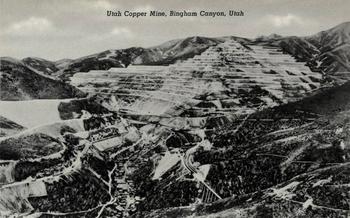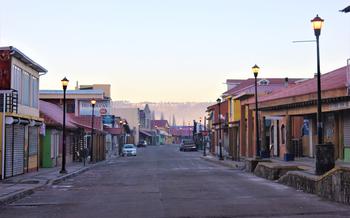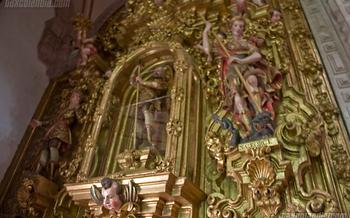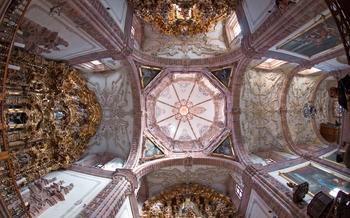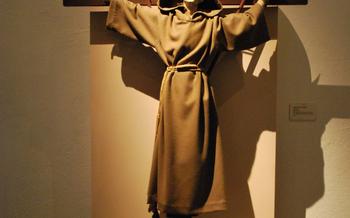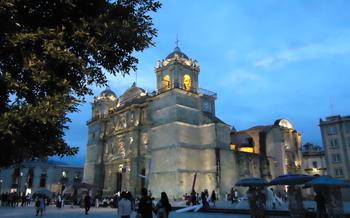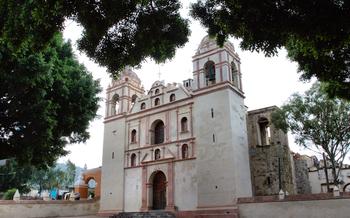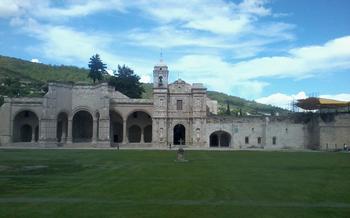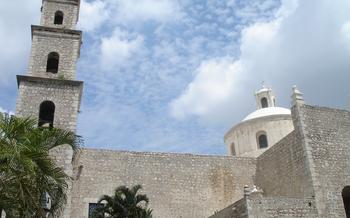
Menonita Museum
- Preserving Heritage: The Mennonite Community in Mexico
- Immersive Experience: Discovering Mennonite Life
- Religious Beliefs and Practices: A Glimpse into Mennonite Faith
- Agricultural Legacy: Mennonite Farming Practices
- Educational Opportunities: Mennonite Schools and Institutions
- Mennonite Cuisine: A Culinary Journey
- Artistic Expressions: Mennonite Crafts and Handicrafts
- Mennonite Music and Folk Traditions
- Community Festivals and Celebrations
- Language and Dialects: Preserving Mennonite Heritage
- Mennonite Architecture: A Reflection of Cultural Identity
- Natural Beauty: Exploring the Copper Canyon Region
- Local Accommodation: Experiencing Mennonite Hospitality
- Insider Tip: Unveiling Hidden Gems
Preserving Heritage: The Mennonite Community in Mexico
The Mennonite community in Mexico is a testament to resilience and the preservation of cultural heritage. Originally from Europe, the Mennonites sought religious freedom and found it in the fertile lands of Mexico, where they established thriving communities. Over generations, they have maintained their traditions, language, and way of life, largely unchanged from their ancestors.
Cultural Traditions and Practices Preserved by the Mennonites
The Mennonites are renowned for their strong sense of community and their emphasis on family values. They live in close-knit villages, where members support and rely on one another. Traditional gender roles are still observed, with men primarily responsible for farming and women for household duties and raising children.
Role of the Museum in Preserving Mennonite Heritage
The Menonita Museum plays a vital role in preserving and showcasing the Mennonite heritage. Through interactive exhibits, artifacts, and historical documents, the museum tells the story of the Mennonite journey from Europe to Mexico. Visitors can gain insights into their religious beliefs, farming practices, and cultural traditions.
Challenges Faced by the Mennonite Community
Despite their success in preserving their heritage, the Mennonite community faces challenges. Modernization and the influence of the outside world have led to a gradual erosion of some traditional practices. Additionally, the Mennonites have had to adapt to the changing economic and political landscape of Mexico.
Immersive Experience: Discovering Mennonite Life
Step into the Mennonita Museum and immerse yourself in the rich tapestry of Mennonite life. Interactive exhibits and displays bring the history and culture of this unique community to life. Learn about their journey from Europe to Mexico, the challenges they faced, and the traditions they preserved.
Traditional clothing, furniture, and household items offer a glimpse into the daily lives of the Mennonites. Admire the intricate needlework and craftsmanship that adorn their clothing, the sturdy construction of their furniture, and the simplicity of their household objects. These artifacts tell stories of a people who value practicality, functionality, and community.
Audiovisual presentations and guided tours provide deeper insights into Mennonite culture and history. Listen to personal accounts from Mennonites who share their experiences, beliefs, and perspectives. Learn about their religious practices, their educational system, and their agricultural traditions.
The museum also offers opportunities for cultural exchange and interaction with Mennonites. Attend workshops and demonstrations to learn about Mennonite crafts, cooking, and music. Engage in conversations with Mennonite guides and staff to gain firsthand knowledge of their way of life. The Mennonita Museum is not just a repository of artifacts; it is a living, breathing space where you can experience the vibrancy and diversity of Mennonite culture.
Religious Beliefs and Practices: A Glimpse into Mennonite Faith
The Mennonite community in Mexico is deeply rooted in their religious beliefs and practices, which have shaped their way of life for centuries. The Anabaptist movement, from which the Mennonites originated, emphasized adult baptism, separation of church and state, and pacifism. These principles continue to guide the Mennonite community in Mexico, influencing their daily lives and interactions with the wider society.
The church plays a central role in the Mennonite community, providing spiritual guidance, social support, and a sense of belonging. Traditional Mennonite worship services are held in Plautdietsch, the language spoken by many Mennonites, and are characterized by simplicity, humility, and a focus on community. Singing hymns, reading the Bible, and sharing testimonies are integral parts of these services.
Mennonites believe in the importance of living a life of simplicity, modesty, and non-resistance. They strive to follow the teachings of Jesus Christ and to live in peace with all people. This commitment to pacifism has led the Mennonites to reject military service and to actively promote peace and reconciliation in their communities.
The Mennonite faith emphasizes the importance of community and cooperation. They believe that the church is a community of believers who support and care for one another. This sense of community extends beyond the church walls, as Mennonites often work together in agricultural cooperatives and other community-based projects.
Agricultural Legacy: Mennonite Farming Practices
The Mennonites in Mexico have a long and rich history of farming, bringing with them a wealth of agricultural knowledge and practices from their European roots. They are renowned for their sustainable farming methods, which emphasize soil conservation, crop rotation, and water management.
Their commitment to sustainable agriculture is evident in their use of organic fertilizers, crop rotation techniques, and efficient irrigation systems. They have successfully adapted to the unique challenges of the Mexican climate and terrain, transforming arid regions into productive farmland.
One of the key features of Mennonite farming is their emphasis on communal land ownership and cooperation. They often work together to share resources, equipment, and expertise, fostering a sense of community and mutual support.
The Mennonites have achieved remarkable success in agriculture, becoming major producers of wheat, corn, beans, and dairy products. Their agricultural expertise is highly respected, and they are often sought after for advice and collaboration by other farmers in the region.
Despite their successes, the Mennonites also face challenges in their agricultural endeavors. These include access to water, changing climate patterns, and the need to adapt to new technologies. However, they remain committed to their sustainable farming practices, ensuring the long-term viability of their agricultural heritage.
Educational Opportunities: Mennonite Schools and Institutions
The Mennonite community in Mexico places a strong emphasis on education, believing that it is essential for preserving their culture and identity. The Mennonite educational system in Mexico is well-developed and provides a high-quality education to children and young adults.
Mennonite schools in Mexico typically offer bilingual education, with instruction in both Spanish and Plautdietsch, the traditional language of the Mennonites. This allows students to maintain their cultural heritage while also integrating into the broader Mexican society.
In addition to academic subjects, Mennonite schools also focus on practical skills and vocational training. This is in line with the Mennonite belief in the importance of hard work and self-sufficiency. Students are taught skills such as agriculture, carpentry, and mechanics, which will help them to become productive members of the community.
The Mennonite educational system also includes several post-secondary institutions, such as the Mennonite Bible Institute and the Mennonite Central Committee Training Center. These institutions offer a variety of programs, including teacher training, nursing, and agriculture.
The Mennonite community in Mexico is committed to providing a high-quality education to its children and young adults. They believe that education is essential for preserving their culture and identity, and for preparing their young people to be successful in the modern world.
Mennonite Cuisine: A Culinary Journey
Mennonite cuisine is a unique blend of German and Mexican culinary traditions, reflecting the heritage and cultural influences of the Mennonite community in Mexico. Traditional Mennonite dishes are often simple and hearty, emphasizing fresh, locally grown ingredients and communal dining experiences.
One of the most iconic Mennonite dishes is borscht, a hearty beetroot soup served with sour cream and bread. Other popular dishes include zwieback, a twice-baked bread; schnitzel, a breaded and fried cutlet; and vereniki, a type of filled dumpling. Mennonites are also known for their delicious baked goods, such as apple strudel, cinnamon buns, and pies.
Mennonite families often gather for communal meals, where they share traditional dishes and strengthen their bonds. Community kitchens, known as "kochstubes," play an important role in Mennonite culture, providing a space for women to cook, socialize, and pass on culinary traditions to younger generations.
Visitors to the Copper Canyon region can indulge in Mennonite cuisine at local guesthouses and restaurants. Mennonite bakeries and specialty food shops offer a variety of homemade goods, from freshly baked bread and pastries to jams, pickles, and sausages.
Exploring Mennonite cuisine is a delightful way to experience the cultural heritage and hospitality of the Mennonite community in Mexico. From hearty soups and stews to sweet baked goods, Mennonite food offers a unique and flavorful culinary journey.
Artistic Expressions: Mennonite Crafts and Handicrafts
Mennonites are known for their skilled craftsmanship and intricate handicrafts, which showcase their creativity, attention to detail, and deep connection to tradition. Woodworking, weaving, embroidery, and pottery are among the most popular crafts practiced within the community.
Mennonite woodworkers create beautiful furniture, toys, and decorative items using local wood. They employ traditional techniques and intricate designs, often inspired by nature and their cultural heritage.
Mennonite women excel in weaving and embroidery, creating colorful textiles, rugs, and wall hangings adorned with intricate patterns and symbols. Their embroidery often depicts scenes from nature, religious themes, or everyday life, showcasing their artistic talents and storytelling abilities.
Pottery is another important craft among the Mennonites. They create functional and decorative pottery using local clay, employing traditional methods passed down through generations. Their pottery is known for its durability, simplicity, and unique designs, often featuring geometric patterns or floral motifs.
These handcrafted items not only serve as a source of income for Mennonite families but also play a vital role in preserving their cultural heritage and identity. The sale of these handicrafts at local markets and shops helps to sustain the community and promote Mennonite culture to the wider world.
Mennonite Music and Folk Traditions
Music plays a vital role in the cultural fabric of the Mennonite community. Traditional Mennonite hymns, known as lieder, are sung in Plautdietsch, their unique dialect of German. These hymns, often accompanied by the accordion or harmonica, are a testament to their strong faith and devotion. Folk songs, passed down through generations, tell stories of their history, struggles, and triumphs. The use of traditional instruments like the accordion, harmonica, and guitar adds a distinctive touch to their musical expressions. Cultural events and festivals provide opportunities to witness Mennonite music and dance performances, showcasing the vibrancy and diversity of their cultural heritage.
Community Festivals and Celebrations
Mennonite festivals and celebrations are joyous occasions that showcase the community's rich cultural heritage. One of the most significant events is the annual harvest festival, which takes place in the fall after the crops have been gathered. The festival is a time for thanksgiving, feasting, and community bonding. Families come together to share traditional Mennonite dishes, participate in games and sports, and celebrate the fruits of their labor.
Weddings are another important celebration in the Mennonite community. Traditional Mennonite weddings are simple and solemn affairs, emphasizing the commitment and unity of the couple. The bride and groom wear traditional Mennonite clothing, and the ceremony is conducted in Plautdietsch, the Mennonite language.
Church anniversaries are also significant events in the Mennonite calendar. These celebrations commemorate the founding or dedication of a particular Mennonite church. They are often marked by special worship services, potluck meals, and fellowship among members of the congregation.
Attending a Mennonite festival or celebration is a wonderful opportunity to experience the community's vibrant culture firsthand. Visitors are warmly welcomed and can participate in various activities, such as traditional games, music, and dancing. These events provide a glimpse into the Mennonite way of life and offer a chance to learn about their history, traditions, and beliefs.
Language and Dialects: Preserving Mennonite Heritage
The Mennonites in Mexico have their own unique language called Plautdietsch, a Low German dialect that has evolved over centuries of isolation from their European ancestors. This language serves as a vital part of their cultural identity and heritage, connecting them to their past and their community. Plautdietsch is a living language, spoken by all generations of Mennonites in Mexico, and efforts are being made to preserve and promote it among younger generations.
The Mennonites recognize the importance of language in maintaining their distinct identity. Plautdietsch is used in everyday conversation, in church services, and in schools. It is also used in literature, music, and other forms of cultural expression. The Mennonite community actively encourages the use of Plautdietsch to ensure its continued vitality.
Despite the challenges of living in a Spanish-speaking country, the Mennonites have managed to keep their language alive. This is due in part to their strong sense of community and their commitment to preserving their heritage. Plautdietsch is a symbol of their unique culture and way of life, and it continues to play a vital role in their identity as Mennonites in Mexico.
Mennonite Architecture: A Reflection of Cultural Identity
The Mennonite community in Mexico has developed a distinctive architectural style that reflects their cultural identity and values. Traditional Mennonite houses are typically constructed using sustainable materials such as adobe bricks, wood, and stone. These homes feature simple, functional designs with a focus on practicality and durability. The use of white paint on the exterior walls is a common characteristic, symbolizing purity and simplicity. Mennonite barns and churches are also notable for their unique architectural features, such as high-pitched roofs and large windows. The barns serve as storage spaces for agricultural equipment and crops, while the churches are central gathering places for the community. Mennonite architecture showcases the community's commitment to sustainability, functionality, and their deep connection to their cultural heritage.
Natural Beauty: Exploring the Copper Canyon Region
The Menonita Museum is situated in the heart of the awe-inspiring Copper Canyon region, a natural wonder that captivates visitors with its dramatic landscapes, diverse ecosystems, and rich cultural heritage. The region is home to a network of deep canyons, towering cliffs, and lush valleys, carved by the relentless flow of the Rio Grande and its tributaries over millions of years.
Venturing beyond the museum, you can embark on unforgettable hiking trails that wind through the canyons, leading you to breathtaking viewpoints and hidden waterfalls. Immerse yourself in the region's unique flora and fauna, spotting majestic birds of prey soaring overhead, encountering playful squirrels darting through the trees, and marveling at the vibrant wildflowers that paint the landscape with color.
The Copper Canyon region offers a multitude of outdoor activities for adventure enthusiasts. Whether you prefer horseback riding through the rugged terrain, mountain biking along scenic trails, or rappelling down sheer cliffs, there's something for every thrill-seeker. Experience the exhilaration of white-water rafting on the Rio Grande, navigating the powerful currents and navigating through narrow gorges.
Remember to embrace responsible and sustainable tourism practices during your explorations. Respect the delicate ecosystems, minimize your environmental impact, and engage with local communities in a respectful and meaningful way. Leave nothing but footprints and take only memories from this extraordinary natural paradise.
Local Accommodation: Experiencing Mennonite Hospitality
Immerse yourself in the warmth and hospitality of the Mennonite community by staying in a Mennonite guesthouse or bed and breakfast. These accommodations offer a unique opportunity to experience Mennonite culture firsthand and interact with local families. Enjoy traditional Mennonite dishes and home-cooked meals prepared with fresh, locally sourced ingredients. Engage in conversations with your hosts, learn about their way of life, and gain a deeper understanding of their beliefs and traditions. Whether you prefer a cozy room in a traditional Mennonite house or a more modern guesthouse, there are options to suit every traveler's needs. Embrace the chance to connect with the Mennonite community and create lasting memories during your stay in the Copper Canyon region.
Insider Tip: Unveiling Hidden Gems
Beyond the museum and the well-known attractions, there are hidden gems waiting to be discovered in the Mennonite community. Visit the Mennonite markets to find unique souvenirs and handcrafted goods that reflect their craftsmanship and creativity. These markets often showcase a variety of products, from traditional clothing and textiles to handmade furniture and pottery.
Attending a Mennonite church service is an immersive experience that offers a glimpse into their religious beliefs and practices. Observe their traditional worship, characterized by simplicity, humility, and a strong sense of community. Respectful behavior and appropriate attire are essential when attending these services.
The Mennonite cemetery holds stories of the community's past and present. Take a walk through the cemetery to learn about their burial customs and traditions, which often reflect their beliefs about life, death, and resurrection. The tombstones often bear inscriptions in Plautdietsch, providing a glimpse into their language and heritage.
Engaging in conversations with Mennonite locals is an invaluable way to gain insights into their way of life, values, and perspectives. Approach them with respect and curiosity, and they may share stories, experiences, and traditions that offer a deeper understanding of their community. These interactions can create memorable connections and foster cross-cultural exchange.
